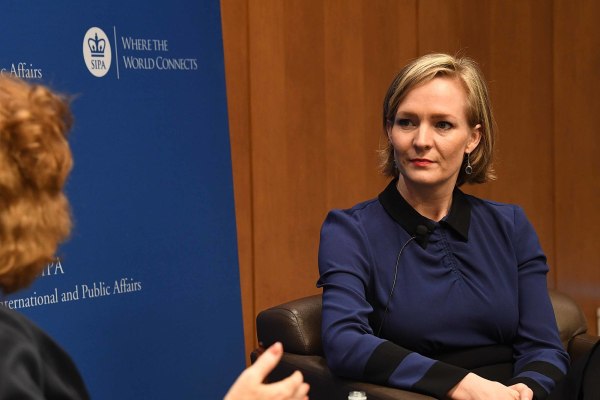
‘Europe’s most wired’ politician outlines her top cyber issues

In the ten years she spent as a member of the European Parliament, Marietje Schaake became one of Brussels’ leading voices on technology policy issues.
A Dutch politician from the centrist-liberal Democrats 66 party, Schaake has been called “Europe’s most wired” politician. Since stepping down at the last European Parliament elections in 2019, she has doubled down with her work on cyber policy, becoming president of the CyberPeace Institute in Geneva and moving to the heart of Silicon Valley, where she has joined Stanford University as both the International Director of Policy at Stanford’s Cyber Policy Center, as well as an International Policy Fellow at its Institute for Human-Centered Artificial Intelligence.
I spoke with her about her top cyber policy concerns, the prospects of greater U.S.-EU cooperation on technology and much more.
Can you tell me about your journey from MEP in Brussels to think tank in academia?
There were a variety of reasons why I thought a third term was not the best thing for me to do. I started thinking about what would be a good way to continue, focusing on the fight for justice, for universal human rights and increasingly for the rule of law. A number of academic institutions, especially in the U.S. reached out, and we started a conversation about what the options might be, what I thought would be worthwhile. [My goal] was to understand where tech is going and what does it mean for society, for democracy, for human rights and the rule of law? But also how do the politics of Silicon Valley work?
I feel like there’s a huge opportunity, if not to say gap, on the West Coast when it comes to a policy shop — both to scrutinize policy that the companies are making and to look at what government is doing because Sacramento is super interesting.
So from a policy perspective, what areas of tech are you thinking about most?
I’m very concerned about the future of democracy in the broadest sense of the word. I feel like we need to understand better how the architecture of information flows and how it impacts our offline democratic world. The more people get steered in a certain direction, the more the foundations of actual liberalism and liberal democracy are challenged. And I feel like we just don’t look at that enough.

